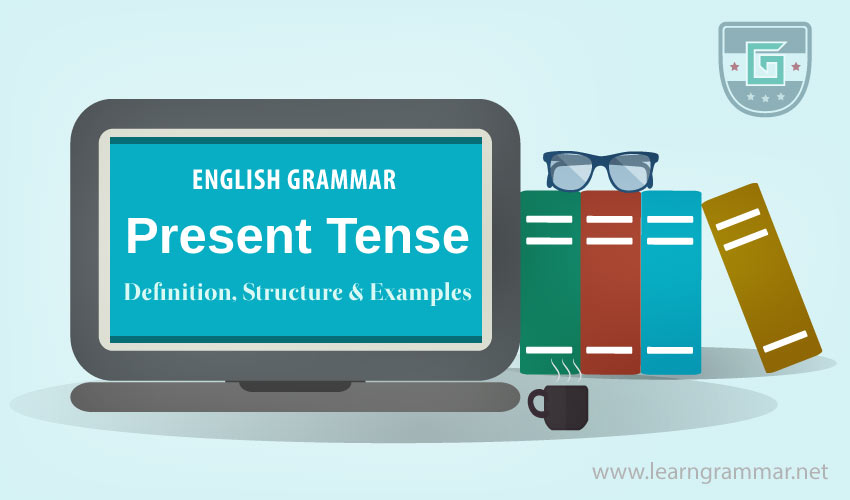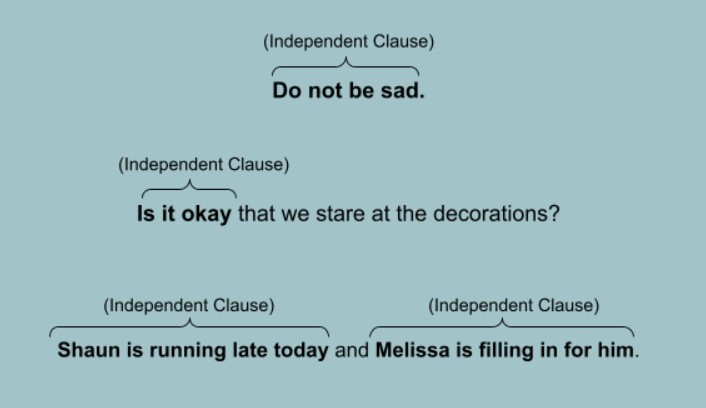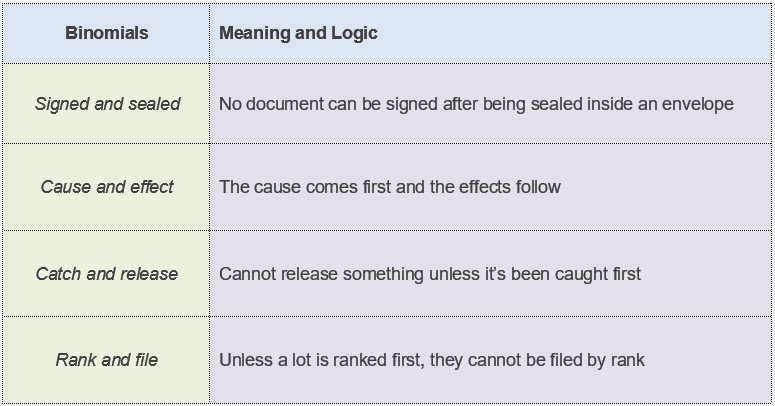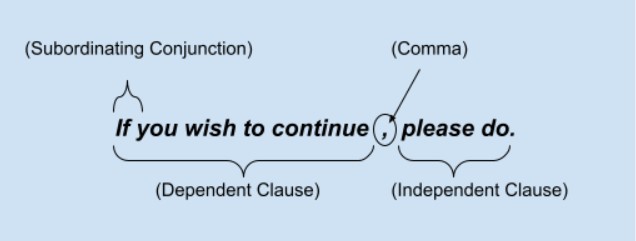Present Tense: Definition, Structure & Examples

Tenses demonstrate the time of action in sentences usually performed by or centered around the subject of the sentence. The actions are called verbs. Verbs change according to tenses and other issues. As verbs are the most important elements of English sentences, tenses also carry paramount importance in English grammar.
Tenses are mainly categorized into three types.
1. Present Tense
2. Past Tense
3. Future Tense
Present Tense
Each of the types of tenses has four different forms.
- Present Indefinite Tense
- Present Progressive (Continuous) Tense
- Present Perfect Tense
- Present Perfect Progressive (Continuous)
Present Indefinite Tense
The present indefinite tense, also known as simple present tense, denotes a stative or habitual or eternally true action.
Generally, simple present tense is used to indicate an action which happens – always, regularly, every day, daily, normally, generally, usually, occasionally, sometimes, often, rarely, frequently, nowadays, naturally, seldom, constantly, never, every week, every year, once a year, on a week, at times, at present, now and then, or all the time.
Structure:
|
Subject (third person singular number) + verb in simple present form + s/es + . . . . . |
|
Subject (all other kinds) + verb in simple present form + . . . . . |
Note: When ‘be’ verbs work as the main verb in a sentence, they are different from the above structures.
|
Person/Number |
Singular |
Plural |
|
First |
I am a good cricket player. |
We are good cricket players. |
|
Second |
You are an irresponsible person. |
You all are always irresponsible. |
|
Third |
The earth is smaller than Jupiter. |
Junk food is not good for health. |
There are some stative verbs that are usually used in simple tenses whether present or past or future.
The stative verbs are:
|
Have Understand Know Believe |
Hate Need Hear Love |
Appear See Like Seem |
Smell Want Taste Wish |
Sound Own
|
Examples:
- I know Billy Bob.
- He understands it.
- They love swinging in the park.
- Some people do not believe in God.
- I usually wake up at 6:00 AM.
- He plays cricket, but his brother plays football.
- Earth is bigger than Mercury.
- The heat of the sun reaches the least to the polar.
How the Forms of Verbs Change in Different Types of Sentences
|
Affirmative |
Interrogative |
Negative |
|
I sing on stage. |
Do I sing on stage? |
I don’t sing on stage. |
|
We run behind the train. |
Do we run behind the train? |
We don’t run behind the train. |
|
You are on the roof. |
Are you on the roof? |
You aren’t on the roof. |
|
Allan writes well. |
Does Allan write well? |
Allan does not write well. |
|
She hands out leaflets. |
Does she hand out leaflets? |
She doesn’t hand out leaflets. |
|
They love dancing in the rain. |
Do they love dancing in the rain? |
They don’t love dancing in the rain. |
More Examples of Present Indefinite Tense
Present Progressive (Continuous) Tense
The present progressive tense is used to indicate the ongoing time (now). However, the stative verbs do not usually take the form of present progressive tense even though they refer to the present time.
Now, continually, perpetually, at this moment, at the moment, right now, this season, this year, forever, etc. words or word pairs are usually signs that the verb in a sentence is in the present progressive form. However, these signs are not necessary all the time for a verb to be of present progressive tense.
Structure:
|
Subject + am/is/are + verb + ing + . . . . . . . . . |
Example:
- I am going to the college field.
- He is coming here for some tips.
- They are making a basketball ground.
- Why are you working in that horrible place? (Interrogative)
- Four teams are playing at this moment.
- John is not joining the class today. (Negative)
This structure is also used to demonstrate future time.
Example:
- Alex is leaving for Portugal.
- I am going to complete my task.
- We are leaving at 6:00 PM.
- They are flying to Australia next month.
More Example of Present Progressive Tense
Present Perfect Tense
The present perfect tense is used when one intends to indicate:
- an action that occurred at a time which is indefinite and has its effect on the subject
- or an action that occurred many times and has the possibility to occur in the present/future
- or an action that began in the past and still going on in the present.
Structure:
|
Subject + have/has + verb in the past participle form + . . . . . . . |
The Present-Past-Past Participle Chart:
| Present Form | Past Form | Past Participle Form |
| Shout | Shouted | Shouted |
| Read | Read | Read |
| Give | Gave | Given |
| Take | Took | Taken |
| Sing | Sang | Sung |
| Write | Wrote | Written |
| Wake | Woke | Woken |
| Cast | Cast | Cast |
| Lose | Lost | Lost |
Example:
- Alex has read the book through. (No time is indicated)
- I have read this poem many times. (Not habitual but occurred many times in the past)
- He has lived in this apartment for 15 years. (Still going on)
More examples:
- Their event has not been approved this year. (Negative)
- Have we really done so bad? (Interrogative)
Just, already, yet, just now, ever, lately, recently, etc. are some of the signs for present perfect tense.
Note: Already comes between have/has and the past participle; yet appears with a negative form at the end of the sentence.
Example:
- Alex has already reached there.
- Alex has not reached yet.
- I have already cleaned the house.
- I have not cleaned the house yet.(Negative)
- Has she already gone home? (Interrogative)
More Examples of Present Perfect Tense
Present Perfect Progressive (Continuous)
It is the least used form of present tense. Present perfect progressive tense is used to indicate an action that began in the past and is still occurring in the present. Both present perfect and present perfect continuous tense can be used to indicate this type of action.
Structure:
|
Subject + have/has + been + [verb + ing] + . . . . .+ for/since + time frame. |
Example:
- Alex has been reading for 3 years.
- I have been sleeping since 10.00 AM.
- Robert has been working in that shop for 6 years.
- We have been living together for four years.
- Have we really been waiting for a miracle for fifteen years? (Interrogative)
- She hasn’t been doing her job well enough for the last 5 years. (Negative)
More Examples of Present Perfect Continuous Tense
Grammar
Read More
- How to Use "Therefore" in Sentences Avoiding Common Mistakes
- How to Use "Whereas" with Examples and Avoid Common Mistakes
- When and How to Use "Thus" Correctly Without Common Mistakes
- How to Use "On the Contrary" Properly with Meaning and Examples
- When and How to Use "Either/Or" with Examples and Common Mistakes to Avoid
- How to Use "On the Other Hand" Effectively without Mistakes
- How to Use "Respectively" with Example and Common Errors to Avoid
- How and When to Use "Moreover" Without Mistakes
- How to Use "Likewise" in Sentences Based on Context & When not to Use
- When & How to Use "Although" in Sentences to Avoid Mistake



